- Home
- Sharyn McCrumb
The Rosewood Casket
The Rosewood Casket Read online
The author and publisher have provided this e-book to you for your personal use only. You may not make this e-book publicly available in any way. Copyright infringement is against the law. If you believe the copy of this e-book you are reading infringes on the author’s copyright, please notify the publisher at:us.macmillanusa.com/piracy.
For my fellow Appalachian writers
Garry Barker, David Hunter, and Clyde Kessler—
sons of the pioneers
CONTENTS
Title Page
Copyright Notice
Dedication
“Small Farms Disappearing in Tennessee”
Prologue
Spring 1824
Chapter 1
Chapter 2
Chapter 3
Chapter 4
Chapter 5
Chapter 6
Chapter 7
Chapter 8
Chapter 9
Chapter 10
Chapter 11
Chapter 12
Chapter 13
Chapter 14
Chapter 15
Chapter 16
Acknowledgments
Reading Guide
Also by Sharyn McCrumb
About the Author
Copyright
SMALL FARMS DISAPPEARING IN TENNESSEE
Sometimes a whole farm family comes awake
in a close dark place over a motor’s hum
to find their farm’s been rolled up like a rug
with them inside it. They will be shaken onto
the streets of Cincinnati, Dayton, or Detroit.
It’s a ring, a syndicate dismantling farms
on dark nights, filing their serial numbers
smooth, smuggling them north like stolen cars,
disposing of them part by stolen part.
Parts of farms turn up in unlikely places:
weathered gray boards from a Tennessee burley tobacco
barn are up against the wall of an Ohio
office building, lending a rustic effect.
A Tennessee country church suddenly appeared
disguised as a storefront in downtown Chicago.
Traces of Tennessee farms are found on the slopes
of songs written in Bakersfield, California.
One missing farm was found intact at the head
of a falling creek in a recently published short story.
One farm that disappeared without a clue
has turned up in the colorful folk expressions
of a state university building and grounds custodian.
A whole farm was found in the face of Miss Hattie Johnson,
lodged in a Michigan convalescent home.
Soil samples taken from the fingernails
of Ford plant workers in a subdivision
near Nashville match those of several farms
which recently disappeared in the eastern end of the state.
A seventy-acre farm that came to light
in the dream of a graduate student taking part
in a Chicago-based dream research project
has been put on a micro-card for safekeeping.
Divers searching for a stolen car
on the floor of an Army Corps of Engineers
impoundment, discovered a roadbed, a silo, a watering
trough, and the foundations of a dairy barn.
Efforts to raise the farm proved unsuccessful.
A number of small Tennessee farms were traced
to a land-developer’s safe deposit box
in a mid-state bank after a bank official
entered the vault to investigate roosters
crowing and cows bawling inside the box.
The Agriculture Agency of the state
recently procured a helicopter to aid
in the disappearing farm phenomenon.
“People come in here every week,” the agency head,
Claude Bullock, reports, “whole farm families on tractors,
claiming their small farm has disappeared.”
Running the Small Farms arms of the agency
is not just a job for Bullock, born and brought up
on a small Tennessee farm himself. “We’re doing
the best we can,” says Bullock, a softspoken man
with a brow that furrows like a well-plowed field
over blue eyes looking at you like farm ponds.
“But nowadays,” he adds, “you can load a farm,
especially these small ones, onto a floppy disk.
Some of these will hold half a dozen farms. You just store them away.
So they’re hard to locate with a helicopter.”
Bullock’s own small farm, a thirty-acre
remnant of the “old home place,” disappeared
fourteen months ago, shortly before
he joined the Small Farms arm of the agency.
—Jim Wayne Miller
Kentucky Poet Laureate
PROLOGUE
I believe the future is simply the past, entered through another gate.
—PINERO
On the mountain a child was crying.
Nora Bonesteel sat in the rocking chair by her fireplace, piecing together the squares of a Jerusalem quilt, half listening to her visitor’s recital of the week’s events: a toddler’s birthday party, a potluck supper at the rescue squad, an ailing neighbor. Nora liked to hear about the doings in the valley, even though age and inclination kept her close to home.
It had become a ritual now that every Sunday night, after evening church service, Jane Arrowood would drive her home, and the two of them would sit together, sewing and talking, a widow and a lifelong spinster, passing the long hours of Sunday evening together.
Nora’s coarse-veined hands were steady in the dim light, feeling their way along the even stitches of the quilt. She barely looked at the scraps of colored cotton as she sewed, and she spoke no more than usual, but every time Jane ran out of things to say, Nora would get her talking again, asking more questions about flowers or recipes to fill the silence. This was so unlike her that several times Jane nearly asked her if anything was the matter, but she told herself that the old woman was lonely, and that she missed the sound of a human voice.
Outside, a night wind rattled the shutters and set oak branches tapping against the tin roof. Puffed clouds scudded across the moon and back, patterning the landscape alternately light and dark.
Jane Arrowood finished telling about the early crocuses in her garden, and held her sewing up to the light of the table lamp to examine her stitches. “Listen to that gale out there,” she said, nodding toward the curtained windows. “You’d never know it was spring.”
Nora Bonesteel closed her eyes and listened for a moment. “It’s early days yet,” she said. “We might be in for another snowfall before the weather breaks.” Then noting the stricken look on her visitor’s face, she added, “But not tonight, Jane. It’s just a wind tonight. Nothing to hinder you getting home. I’ll get us some tea.”
“Oh, don’t trouble yourself. I’ll have to go soon. It’s nearly ten o’clock now, and Spencer always calls to make sure I’ve gotten home all right.” Jane Arrowood stood up and stretched. She could not call her son, the sheriff, to tell him she’d be late. There were no telephone lines strung up Ashe Mountain. Nora Bonesteel was its only resident. Her house was warm and comfortable, and from its picture windows you could see ridge after ridge of cloud-streaked mountains, stretching away in the distance, ranging from green to blue and finally to purple on the horizon, where it was hard to tell mountains from clouds. If you looked out that window when the trees were bare, you could see a black line that had once been the Wilderness Road, that great route westward,
where more than two centuries ago, pioneers had taken their wagons through the Carolina mountains to the fertile Tennessee valleys beyond. Tonight, though, the windows were slabs of black shrouded in heavy curtains. Jane Arrowood could see nothing beyond them. But Nora Bonesteel still could.
“Don’t worry about the sheriff,” she said, ambling toward the kitchen. “He’ll be late. He has enough on his mind tonight, I expect.”
Her visitor sat back down. She did not question the old woman’s statement. Nora Bonesteel knew things. Even when the mountain was dark, even with the radio off and no telephone for miles, Nora Bonesteel knew. “I will have that tea, after all,” said Jane. After a moment she added, “Spencer’s all right, isn’t he?”
She heard the sound of a kettle being filled, and the clatter of crockery. “Other people’s troubles!” Nora called out from the kitchen. “He’s doing his job, I expect. Somebody with car trouble, likely as not, and won’t they be glad to see that patrol car pull up behind them. Your Spencer is an angel unawares.”
Jane Arrowood smiled at this biblical phrase, picturing the sheriff’s reaction to it. “A dark angel,” he would no doubt reply, thinking of all the sorrow he had to bring into people’s lives, with warrants and subpoenas and news about loved ones who weren’t coming home. It would please him tonight if he could balance out the troubles with an act of kindness. Jane did not doubt that when she spoke to him later that night, he would tell her a story of a driver stranded somewhere on a country road near Hamelin, and she would listen without letting on that she already knew, because Nora Bonesteel’s gift of the Sight made Spencer uneasy, as it did most folks in the valley. It wasn’t something Nora talked about if she could help it, but Jane had known Nora all her life, which was more than sixty years, and there was an easiness between them that allowed for an occasional unguarded remark, provided that it was of no consequence. Jane didn’t talk to her son about Nora’s visions, though. Spencer was determined not to believe in such things, and any evidence to the contrary only annoyed him.
Jane picked up her embroidery again, but a sound outside made her drop the cloth and hold her breath, as she strained to hear above the wind. “Miz Bonesteel, what’s that noise outside?” she called out.
“I hear the wind,” said Nora Bonesteel.
“No. Listen hard.” She waited, motionless, until the sound came again. “Did you hear that? It sounds like crying, doesn’t it? Almost like a child.”
“There’s a painter somewhere over the ridge,” said Nora. She stood in the doorway, watching Jane. “Hunters see a glimpse of him now and again. Maybe he’s out tonight.”
Jane Arrowood shook her head. “I know the scream of a mountain lion. It can freeze your stomach to your backbone, but it doesn’t sound like that. What I’m hearing now is a low keening sound, the way a child cries when it’s cold or hungry. Don’t you hear it?”
“No.” The old woman turned and went back into the kitchen.
“It was probably the wind,” said Jane as the silence stretched on. “Sometimes, when I’m alone upstairs and the wind whips around the trees and the tin roof, I could swear I hear voices out there. It sounds like a choir singing in Latin, and I can hear it so plain I can even hum the tune. Just the wind, though.”
She went back to her needlework, an embroidered pillowcase to be offered at the women’s club craft fair in June. The wind had died down, and now she could hear the whistling of the kettle, the click of the stove being shut off, and the plop of boiling water into the rose-patterned teapot that had belonged to Nora’s grandmother. Jane listened for the swish of Nora’s slippers on the pine floor, but for a moment all was quiet. Then she heard footsteps from another direction—as if someone were running across Nora’s front porch, but the tread was light, like that of a small animal—or a child.
“There’s somebody out there,” said Jane aloud.
Nora Bonesteel stood in the doorway, holding the tea tray. “No,” she said.
“But I heard it! Just now when the wind died down. It was as if something little came bounding up on the porch.” Jane walked toward the door.
“Don’t open it!” Nora called out. She finished quietly, “Jane, no one is there. Let’s sit back down now, before the tea gets cold.”
For the next hour, while the wind howled and the branches rattled against the tin roof and the crying rose to a long wail, almost indistinguishable from the storm, the two women sewed. Nora Bonesteel hummed the tune of an old hymn, and Jane kept her eyes on her needlework, willing herself not to hear the cries, the footsteps, and finally the knocking. No one is there, Nora had told her. Jane did not look toward the dark windows for fear that what was not there would be staring back at her.
SPRING 1824
The old woman had climbed the mountain to take one last look at spring, and to say good-bye to the beautiful world that she would lose when death came to take her. She had risen before dawn, as she had all her life, mindful of the Hunters, who waited with their arrows to take the souls of Cherokees they found sleeping after daybreak. Perhaps they watched her more carefully now that she was old, but she would disappoint them. She always wakened in darkness now, and she would greet the sunrise with a song of thanks to Selu, the Corn Mother, for the gift of another day in this green and holy place.
The mountain was called Udawoguhda—the bald mountain. Here the great Shawnee conjurer Groundhog’s Mother had fought a magical giant lizard he had encountered in his search for the serpent monster Utkena. Treeless, and buffeted by ceaseless winds, the bald mountain still slept in winter, its yellow grass unchanged by spring. But along its slope, she had seen coltsfoot flowers and the white mist of blossoming sarvice trees. She paused at the yellow flowers of a spice tree and snapped a twig, breathing its deep, heavy perfume and remembering other springs.
Now she was atop the bald mountain, and the world spread out before her. She had passed through spring and back into the heights of winter. She could see the new life flowering in the valleys, but she was beyond it here—perhaps death was like that: being able to see the world of the living, but being lost in bleakness in some other place. Smoky mountains ringed the valleys like the sides of a serpentine bowl. The ridges were cloudy to her eyes now, even on the clearest days, but she could see with her heart. She could hear the cry of birds overhead, and she knew that the hawks and the lesser birds of the north were flying home, following their own Warriors Path—the chain of mountains marked a trail that would lead them back to their far-off nesting places, now that the earth was warm again.
She wished that she could die in winter, when the loss of the earth would not be such a great sorrow to her. Even greater was the pain she felt at the thought of losing the land—the fortress of mountains and the peaceful valleys cradled within them. She had given much for the sake of the land—a husband, the lives of her kinfolk, and at last even the respect of some of her people, who called her traitor because she would not agree that fighting was the only way to keep the land. She would miss the land, more even than her family, more than the little great-grandson who played in the grass at her feet on warm afternoons.
Perhaps even her spirit in the afterlife would be denied the sight of the mountains, because soon the land would no longer belong to her people. She could see that day coming more clearly than she could see the distant mountains before her. From the valleys beyond that first ridge, trails of chimney smoke rose to mingle with the clouds—signs of farmsteads where once there had been only field and forest, and enough elk and buffalo to feed the nations of the Cherokee, the Shawnee, and the Catawba without contention and without want. She had thought that the whites could learn their custom of sharing the land, but it was not their way, although some of them, too, had loved the land. They had wanted to own bits of the earth, a parcel for each man, and with their long rifles they had killed the great herds for their skins alone, leaving the meat to rot in the fields. She supposed that it was only a different kind of love. Her people loved the land as child
ren love a mother, but the whites’ love seemed to be the longing men felt for a beautiful and fertile woman.
She was ancient now—past eighty in a time when people were old at forty-five. Now would ordinarily have been the time that her people would honor her for her years and her wisdom by naming her the Ghighau—the title in Cherokee meant Beloved Woman, and it was a sign that the gods would speak through her, conveying their will to the people in the voicing of her decisions.
She smiled to think of it. She had been Ghighau now for more than sixty years.
She could hardly remember a time when she did not carry the swan’s wing, the symbol of the authority of the Beloved Woman. It had been a different world then. The bestowing of the great honor had been mingled with her grief for the loss of that young husband, whose face she could not quite call to mind in her imaginings. She remembered, though, his shining hair, worn loose and waist-length, and the single braid in front of his left ear, the sign of the warrior.
For a long time she had tried not to think of him because his memory was tangled into scenes of battle. They had been at war with the Muskogeans—the whites called them Creeks—and her husband Kingfisher was a warrior whose hatred of the invaders had so inflamed her that she went with him, accompanying the war party into the territory held by the enemy. They had gone underhill on the Warriors Path to meet their foe at the Battle of Taliwa. Even the names had changed in the years since. The land her people called “underhill” was “Georgia” to the white settlers, and now she herself was called Nancy Ward. But in those distant days, when all creation seemed young to her, the warrior’s bride had been called Nanyehi, and she had been wellborn, with a child’s grace and dignity, so people had thought her beautiful.
At Taliwa the fighting had been fierce. She had chewed her husband’s bullets so that they would cause great, tearing wounds in the Muskogeans’ flesh. When Kingfisher was shot and lay dying beside her, she hardly had time to think about courage. She thought, later, that it must have been both anger at her husband’s killers and fear for her own life that made her lunge from behind the big chestnut tree, pick up Kingfisher’s gun, and run screaming toward the enemy, shooting and hitting what she aimed at.

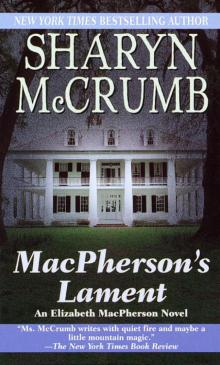 Elizabeth MacPherson 07 - MacPherson’s Lament
Elizabeth MacPherson 07 - MacPherson’s Lament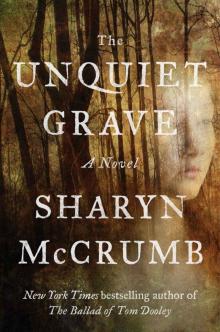 The Unquiet Grave: A Novel
The Unquiet Grave: A Novel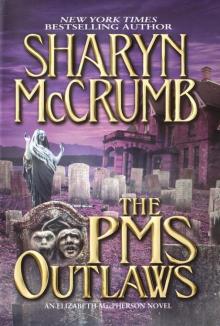 The PMS Outlaws: An Elizabeth MacPherson Novel
The PMS Outlaws: An Elizabeth MacPherson Novel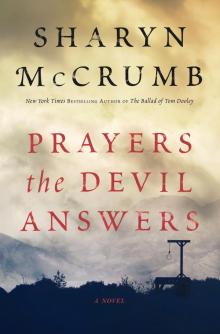 Prayers the Devil Answers
Prayers the Devil Answers Paying the Piper
Paying the Piper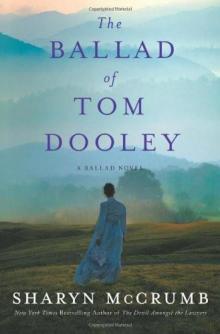 The Ballad of Tom Dooley: A Ballad Novel
The Ballad of Tom Dooley: A Ballad Novel Highland Laddie Gone
Highland Laddie Gone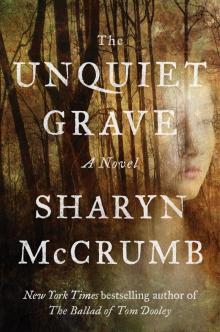 The Unquiet Grave
The Unquiet Grave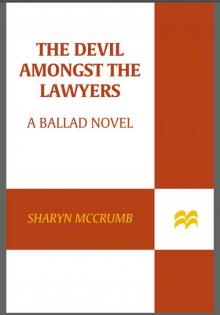 The Devil Amongst the Lawyers
The Devil Amongst the Lawyers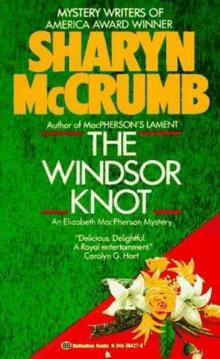 The Windsor Knot
The Windsor Knot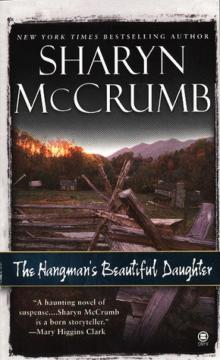 The Hangman's Beautiful Daughter
The Hangman's Beautiful Daughter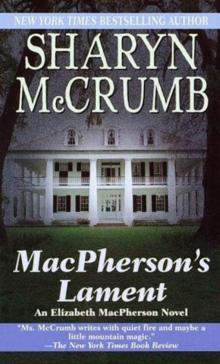 MacPherson's Lament
MacPherson's Lament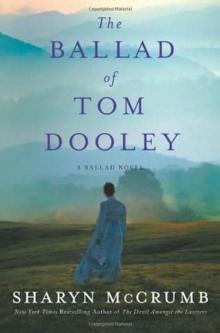 The Ballad of Tom Dooley
The Ballad of Tom Dooley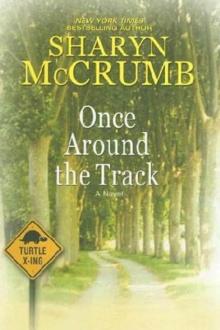 Once Around the Track
Once Around the Track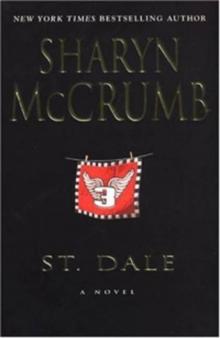 St. Dale
St. Dale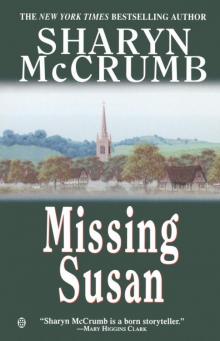 Elizabeth MacPherson 06 - Missing Susan
Elizabeth MacPherson 06 - Missing Susan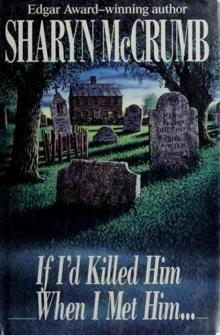 If I'd Killed Him When I Met Him…
If I'd Killed Him When I Met Him…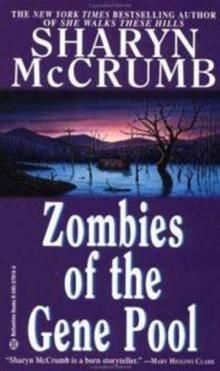 Zombies of the Gene Pool
Zombies of the Gene Pool Bimbos of the Death Sun
Bimbos of the Death Sun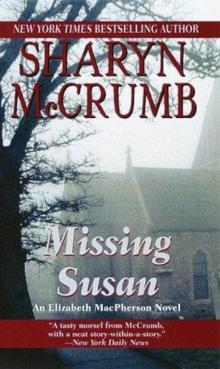 Missing Susan
Missing Susan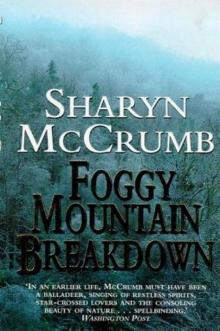 Foggy Mountain Breakdown and Other Stories
Foggy Mountain Breakdown and Other Stories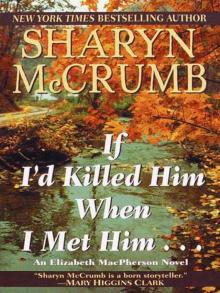 If I'd Killed Him When I Met Him
If I'd Killed Him When I Met Him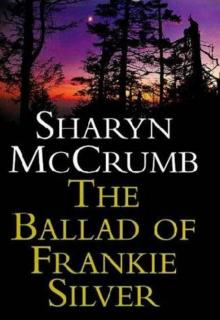 The Ballad of Frankie Silver
The Ballad of Frankie Silver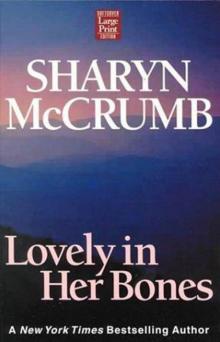 Lovely In Her Bones
Lovely In Her Bones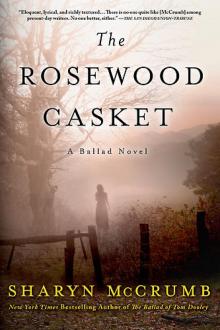 The Rosewood Casket
The Rosewood Casket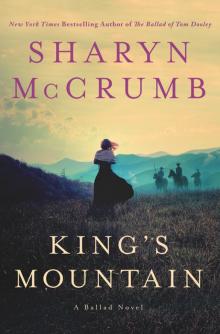 King's Mountain
King's Mountain